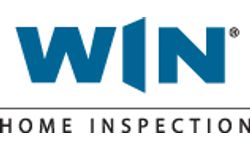
WIN Home Inspection
CONNECT WITH US

 Strong brand and advanced systems help franchisees dominate in rebounding residential real estate market
Strong brand and advanced systems help franchisees dominate in rebounding residential real estate market
The housing slump is over. Home sales have been rocketing upward, and as buyers flood the market, huge opportunities are opening up not only for real estate agents, but also for home inspectors. About 5 million homes are expected to sell in 2013, and 77% of buyers will pay for a home inspection, according to the National Association of Realtors.
There’s just one problem: The demand for home inspectors is now outpacing the supply. When the recession drove part-time and unprofessional inspectors out of business, the WIN Home Inspection franchise did just fine, soaking up the available business during the downturn. Now that the real estate market is roaring back to pre-recession levels, WIN Home Inspection franchise owners have been gobbling up market share.

“The opportunity is great,” says James Price, a 26-year-old National Guard veteran who operates in Lubbock, TX. “I did some research the other day and learned there are 115,000 real estate agents and brokers in the state of Texas, but there are just 2,300 home inspectors.There aren’t enough home inspectors to handle it all! That’s why some inspectors get away with not having great customer service. But if you have a franchise and a system and are professional, you are set up for success.”
WIN’s brand and our professionalism earn a huge amount of trust in the real estate industry, and with so many competitors displaced, we’ve been able to grow even more quickly than before — evidenced by the fact that WIN’s revenue is up 35% over two years.
Almost all lenders require a home inspection, and real estate agents recommend them. In 2012, WIN’s average price for an inspection was $375, with inspectors often doing two or three a day. The demand, and the revenue potential, is huge.
What makes WIN better?WIN thrives in the industry by offering a better, more thorough inspection and a friendly, professional experience.

Our founders — Tom Knapp, a prominent Seattle real estate developer, and Dianne Knapp, a real estate broker — started WIN after seeing how hard it was to find a truly professional home inspector. Often, home inspectors pulled up in a beat-up pickup with a ladder hanging out the back, wearing tattered jeans and a dirty T-shirt, not looking very credible. Other inspectors unnecessarily spooked clients, figuring that their job wasn’t just to assess the home’s quality but to try to tear a house apart like a drill instructor with a first-day cadet — painting every fixable, minor issue as an apocalyptic scenario. In the process, they were scaring people out of good homes. Worst of all, inspections were inconsistent. After one laundry list of fixes was made, the next home inspector might conduct a completely different inspection and generate a completely different list. The inconsistency itself created a pair of problems. One, good homes would be run through the wringer multiple times, with sellers fixing nit-picky items that were presented as “deal breakers” by some inspectors. Second, the inconsistency meant that inspectors would sometimes miss actual issues that needed to be addressed. The home inspection process was broken.

WIN Home Inspection was started in order to create a home inspection franchise that would offer home buyers, sellers and real estate agents a professional, thorough and consistent inspection process. We believe home inspections should provide clarity and confidence, not anxiety. And we believe a strong brand and consistent experience inspire confidence in both real estate agents and home buyers. This leads to WIN home inspection franchise owners earning referrals from agents, which in turn leads to higher revenues and profits.
The brand difference is the first thing a home buyer notices. When a WIN inspector arrives for an inspection, they pull up in a white van, SUV or crossover vehicle branded in WIN colors and with the WIN logo, and they emerge dressed in a WIN-branded polo. Inspectors tote a tablet or convertible PC that is used to perform the inspection. Everything about our inspectors’ appearance and demeanor is designed to be welcoming, crisp and professional.
WIN’s proprietary software helps inspectors perform a consistent inspection, guiding them through the various parts of the home, providing checklists of items to inspect and allowing the inspector to make notes that are incorporated into their home inspection report. The software streamlines the inspection process and makes it faster and easier to generate reports, saving inspectors time, which helps them do more jobs and make more money. While performing inspections, WIN also takes the opportunity to educate home buyers about their new home — “here is the main water line shut-off valve,” “here is your electrical panel” “here is how to operate your water heater and HVAC,” “here are the air filters you need to replace each month.” These things, which might seem obvious to a veteran home inspector, are often unfamiliar to a new home buyer, and WIN inspectors take the time to make sure customers understand their home.
A great post-recession businessWIN’s revenue grew 35% over the past two years. How many other professions can say that? As home sales continue to climb and gather steam, WIN expects strong revenue growth to continue.
The demand creates strong revenue potential for WIN owners. WIN franchises that have been open for three years or longer generated an average revenue of $100,462 in 2012. Not bad for a business with low overhead and startup costs beginning at $32,900 (and even lower for veterans). Sixty WIN owners exceeded that average revenue amount, generating an average of $160,945 in 2012, and the top 25% of owners generated an average of $210,530.
Ready to learn how we help WIN owners generate those kinds of results? Click the research button below to learn more about marketing, training and support, startup costs and financial performance.
